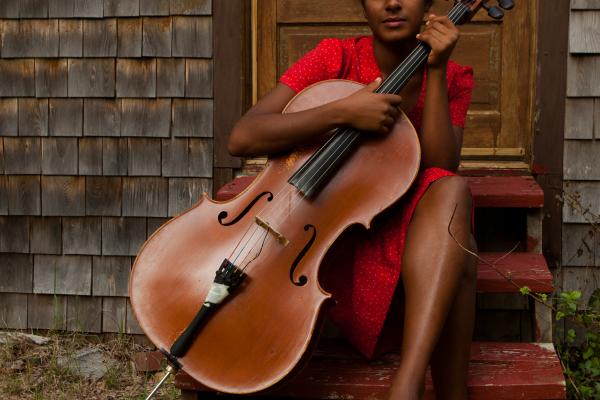LEYLA MCCALLA wrote the title track of her latest album A Day for the Hunter, A Day for the Prey while imagining the experience of the Haitian boat people—political asylum seekers who packed into sailboats headed for the U.S. only to get intercepted by the U.S. Coast Guard mid-journey and sent back to the politically volatile and violent land from which they fled. In the early 1990s, the U.S. repatriated more than 34,000 of these Haitians before hearing their asylum cases and listening to their stories.
McCalla sings their stories now—in French, Haitian Creole, and English. The album’s title is a Haitian proverb that McCalla came across in an excerpt of Gage Averill’s book of the same name: A Day for the Hunter, A Day for the Prey. McCalla explained to NPR that the phrase captures the spirit of her Haitian ancestors, who overcame slavery only to fall in and out of political turmoil, but that the proverb also points to a universal experience: “It made me think of the roles that we all play throughout our lifetimes, how we are all trying to navigate our way through this world where sometimes it feels as though we are the hunter, and sometimes we are the prey.”
McCalla can make us feel like we’ve gone back in time through songs written years ago about people fleeing another time’s violence. But McCalla’s voice also pushes us to consider today’s Syrian boat people, intercepted by white waters, delayed by white fear. And she urges us to consider this historically systemic turmoil alongside our own feelings of personal displacement and victory. The album’s inspiration is as timeless as McCalla’s voice.
Only three of the tracks on A Day for the Hunter are Leyla McCalla originals. All the others she arranges and bolsters with vocals from former Carolina Chocolate Drops band mate Rhiannon Giddens, the jazz guitar of Marc Ribot, and the fiddle of Louis Michot. McCalla incorporates the talents of all these musicians without crowding the sound of her songs. The instruments and voices almost take turns, giving A Day for the Hunter an uncluttered, focused, and conversational feel.
Read the Full Article

